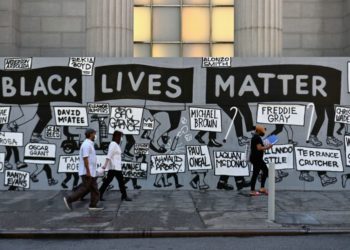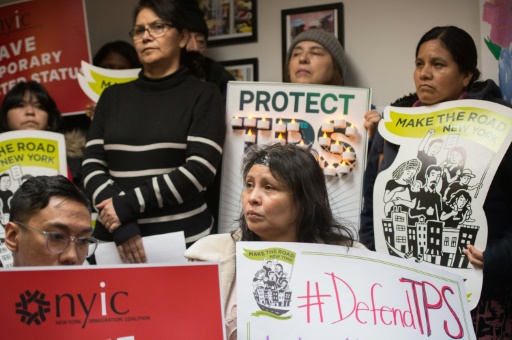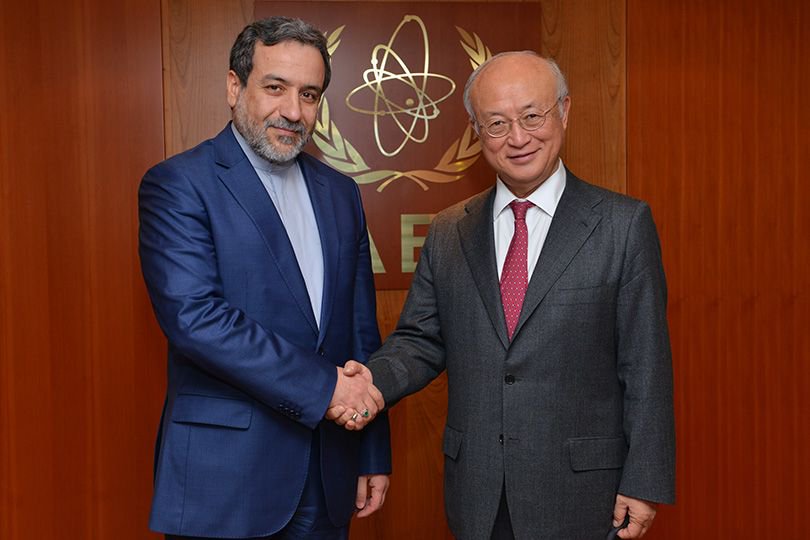President Donald J. Trump unleashed a variety of tweets regarding the protests in Iran last week, however the question remains open whether the Iranian people need support from a president who has no credibility in the country.
The protests began on December 28, and have continued well into Friday of last week. A total of 21 people had died and hundreds were arrested throughout the protests. Washington, and in particular Mr. Trump, have strongly condemned the Iranian government for restricting the rights of their citizens to protest freely.
Citizens have been crying out for economic reform in order to combat rampant unemployment. Iran’s President Hassan Rouhani acknowledged their concerns.
“We have no problem bigger than unemployment. Our economy needs an operation. We must all stand together,” he said last Monday.
Iran had responded to the protests with a “crackdown”, according to Washington. The U.S. has considered imposing fresh sanctions as a punishment. Russia then stepped up and warned Washington to stay out of Iran’s internal affairs.
Mr. Trump took to Twitter to stand in solidarity with the Iranian people, a move that has some experts scratching their heads.
Such respect for the people of Iran as they try to take back their corrupt government. You will see great support from the United States at the appropriate time!
— Donald J. Trump (@realDonaldTrump) January 3, 2018
Muhammad Sahimi, a professor at the University of South Carolina in Los Angeles, believes that Mr. Trump’s comments will only exacerbate tensions between Iran and the U.S. He told The Globe Post that Mr. Trump is highly unpopular and seen as hypocritical by most Iranians because “[he] essentially banned Iranians from entering the United States, and [his] administration has sided with Iran’s archenemy, Saudi Arabia.”
Mr. Sahimi went on to say that Mr. Trump “has zero credibility inside Iran…one important reason the middle class in large cities did not join the demonstrations was exactly because it did not want people’s legitimate demands [to] be exploited by discredited figures such as Trump.”
“Support” for Iranian people expressed by Mr. Trump plays exactly into the hands of Iran’s hardliners, Mr. Sahimi noted. “So, if anything, this will further antagonize the relations between the two governments.”
The Influence of Outsiders
According to The Guardian’s Sanam Vakil, Mr. Trump’s barrage of tweets has indeed made the situation in Iran worse for protestors and better for the Iranian government. Iranian authorities have blamed outside powers for interfering with its affairs since the 1979 Islamic revolution, as was the case with these recent protests.
“All those who are at odds with the Islamic Republic have utilised various means, including money, weapons, politics and intelligence apparatuses, to create problems for the Islamic system, the Islamic Republic and the Islamic Revolution,” Mr. Khamenei has said.

Tensions in between the U.S. and Iran have been high. Professor Janet Bauer of Trinity College told The Globe Post that “over the last three decades U.S.-Iran relations have been defined by stubborn feelings of mutual betrayal and ‘disrespect’, demonization/mischaracterization of the other, and competition for hegemony in the Middle East.” The backing of protestors, who are seen to be challenging the regime’s right to rule, by the U.S. is a move that has not gone over well with Iranian officials.
Professor Bauer said Mr. Trump’s comments are perfect fuel for the Iranian government to arrest more protestors.
“Importantly, Trump’s support of protestors is easily used by the Iranian administration to charge demonstrators with ‘aiding’ a foreign entity to attempt regime change—charges that have been repeatedly made in the past in detaining others—like visiting Iranian-Americans and others who challenge the administration,” she said.
Human rights violations may rise as the Iranian government may speculate that some protestors are being aided by the U.S. as a result of the president’s open support because “…Trump’s support of protestors is easily used by the Iranian administration to charge demonstrators with “aiding” a foreign entity to attempt regime change—charges that have been repeatedly made in the past in detaining others—like visiting Iranian-Americans and others who challenge the administration.”
The people of Iran are finally acting against the brutal and corrupt Iranian regime. All of the money that President Obama so foolishly gave them went into terrorism and into their “pockets.” The people have little food, big inflation and no human rights. The U.S. is watching!
— Donald J. Trump (@realDonaldTrump) January 2, 2018
Sanctions Remain Important
The U.S. has been imposing sanctions on Iran since the Islamic Revolution. Iran is seen as a belligerent nation that is a threat to U.S. interests, thus sanctions are utilized to deter and punish Iran.
According to Professor Bauer, “The continued US pursuit of sanctions is sure to irritate both Iranians who would like some changes in regime policies and those who support the status quo.” Mr. Trump will have to decide whether he will or will not renew sanction waivers within the next two weeks.
Ms. Vakil said that continued economic pressure will compel Iran to return to negotiations regarding its nuclear programs, programs that the U.S. vehemently opposes.
Professor Nancy Gallagher of the University of Maryland told The Globe Post that Mr. Trump’s tweets are counterproductive because they do not address the economic concerns of Iranians.
“Given that the vast majority of Iranians see economic issues as a much more urgent problem than lack of civil liberties, to the extent that they blame the US for part of those economic problems, I would think that they would rather have Trump fully support the JCPOA [Joint Comprehensive Plan of Action] than tweet about political freedom,” she said.
She also mentioned that 50 percent of Iranians expected Mr. Trump’s policies to be hostile to Iran, according to an extensive poll done by the Center for International and Security Studies at Maryland.
Ms. Gallagher said she expected that even more Iranians see Mr. Trump as hostile now because of the Administration’s policies, specifically what the president “has said about Iran as a main cause of all the problems in the Middle East, his travel ban, his decertification of the JCPOA, etc.”
Adjunct Assistant Professor at the Department of Central Eurasian Studies and Senior Fellow at Center for the Study of the Middle East at Indiana University, Haidar Khezri, believes that Mr. Trump’s tweets have had some positive effects.
Mr. Khezri argues that Iranian “…activists, people, and protesters welcomed warmly Trump’s tweets and called for him “to not be like Obama in 2009,” who didn’t support the Green Movement.”
“Trump’s concerns and actions put the protest at the attention of the world and made it very clear to the Iranian government that the world is watching! The Iranian regime reduced its brutality in suppressing the protest, even though more than 21 people died. I do believe Trump’s early response to the protest and bringing it to the attention of the world reduced the casualties and encouraged the protesters to demand their basic rights”, Mr. Khezri told The Globe Post.
However, he ended by noting that “…there is a concern among the Iranian people that Trump – like Obama – may sacrifice the protests at the end, once he achieved his goals regarding the Iranian Deal, Iran’s Ballistic Missile Program, and Iran’s behavior in the region.”























